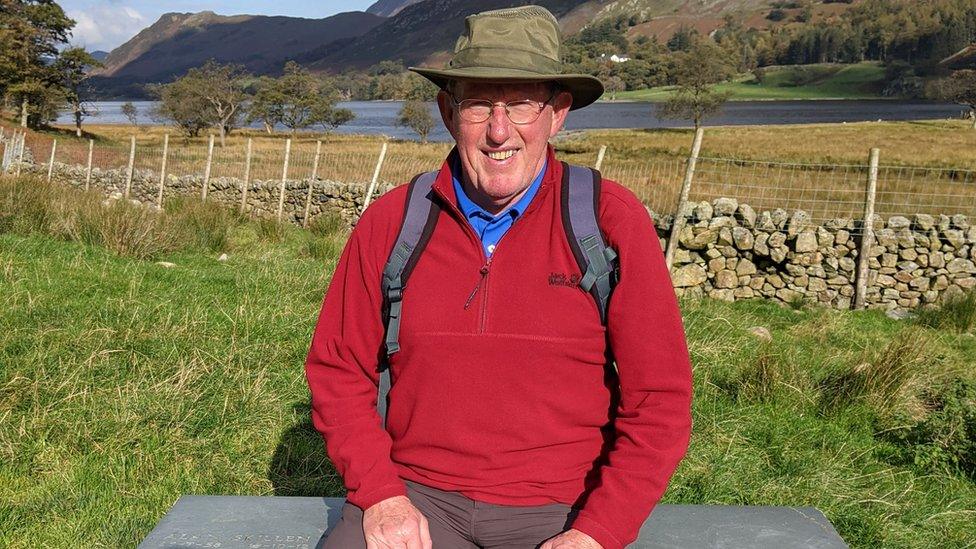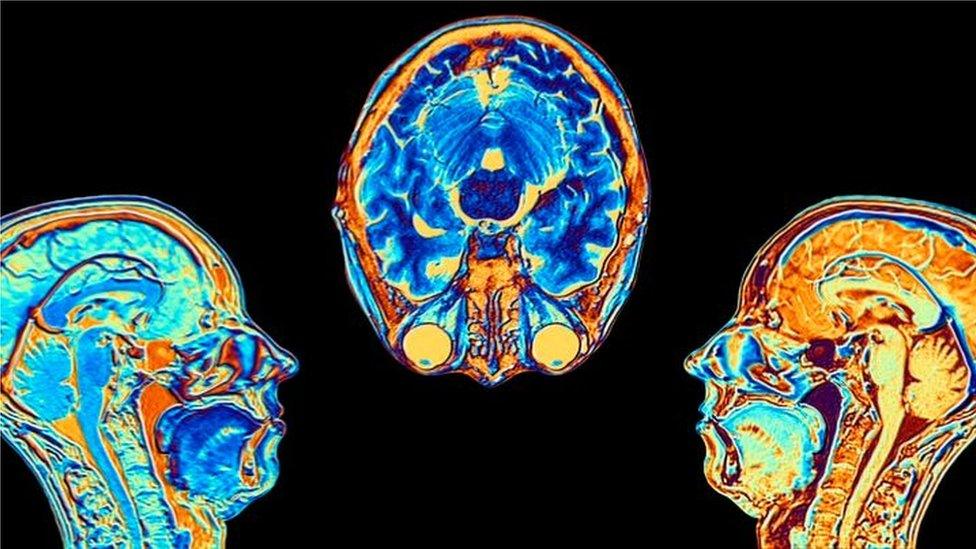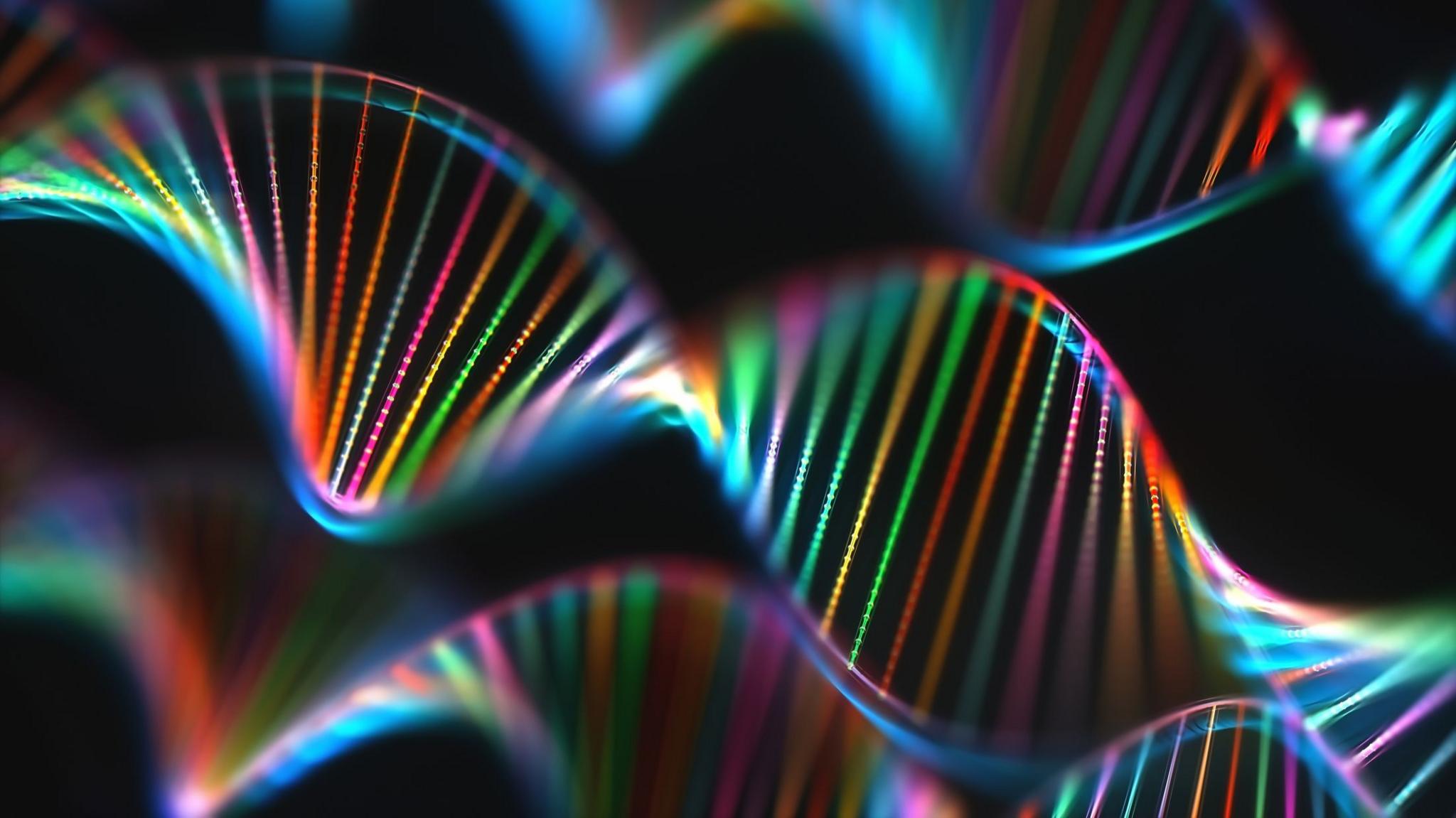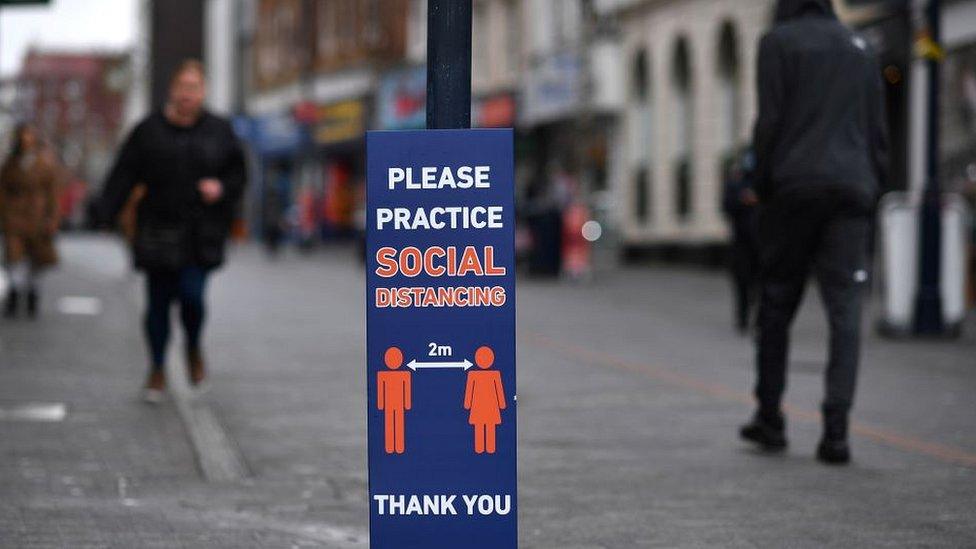Covid: UK Biobank scans aim to reveal health legacy
- Published
- comments

Volunteer Brian Shepherd says he's pleased to "do his bit"
Scientists from UK Biobank have embarked on a major study to determine Covid-19's long-term health impacts.
UK Biobank is a biomedical database with medical images, genetic data and health information on 500,000 people.
About 1,500 people who have had Covid will be scanned again to check how organs are affected by infection.
Its chief scientist, Prof Naomi Allen, said it was the only study able to compare patient data before and after they have had Covid.
Prof Allen added: "We knew at the beginning of the pandemic that Covid-19 was largely a respiratory illness. And now what we also know is that it seems to affect other parts of the body as well - the heart, the liver, the kidneys, and even the brain.
“So researchers will be able to investigate the direct effects of coronavirus infection on changes in both the structure and the function of these organs.”
The study will look at people with asymptomatic Covid, and others who had severe disease.
Brain scans will also be carried out to try to aid understanding of long Covid.
“It will enable researchers to investigate whether the effects of the virus on different organs of the body vary between how severe your infection was in the first place,” explains Prof Allen.
Detailed scans of 1,500 Biobank members who have not been infected will also be recorded.

'Very proud of taking part'
Brian Shepherd, 71, from Gateshead, is one of those taking part.
In November he spent five days in hospital after catching Covid.
“The worst thing was when I got in the ambulance, with my wife standing on the pavement, and you think 'will I ever see her again?'."
But after five days of treatment, Brian was allowed home. He has recovered well, but still has some symptoms.
He hopes his scans - and those of the other Biobank volunteers - will help us to learn more about the after-effects of the disease.
“We're all very proud of taking part in it, and feel that our little bit can help somewhere along the line for the rest of the world.”

Science is still in the early stages of understanding the long-term effects of Covid.
Research has already started to chart its impact. Scientists have discovered scarring on the lungs, inflammation and muscle damage of the heart, and kidney injuries.
The virus can also affect the brain, and some long Covid sufferers have said they are experiencing “brain fog” - problems with memory and concentration, dizziness and depression.

MRI scans
The hope is the study could pinpoint some of the neurological changes that may have taken place.
Prof Paul Matthews, a neuroscientist from Imperial College London, said: “The brain scans can tell us more general things about the brain structure. Whether there's evidence for inflammation in the brain that may be persisting, and whether there's been damage enough to to actually kill nerve cells in the brain that may cause some shrinkage.”
These scans will be repeated over the coming years - and made available to researchers all around the world.
The team says our understanding of the health legacy of Covid is just beginning.
Related topics
- Published14 April 2020

- Published3 February 2021
